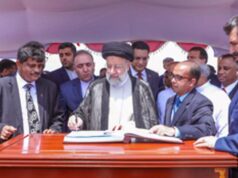India Needs To Step In To Make Arabian Sea And Gulf Of Oman A Tension Free Zone
In 2015 the Government of India had made an action plan to decrease India’s oil import dependence by at least 10 per cent to 67 per cent from the existing 77%.
The time frame to achieve this reduction was by 2022. However due to rapid increase in consumption this import dependence has only increased since then and now only way out is to increase our own domestic output.
The government is also planning to rope in private investment to raise domestic oil and gas production, which has stagnated for the last few years in spite of fuel demand rising by 5-6 per cent annually.
A great initiative has been announced through Government Sources that by 2022 all two and three wheelers will be battery operated only.
Though disposal of batteries will create its own problem unless tackled from day one itself. Also road side mechanics who are in large number but self employed will have to be provided with all support needed by the Government in order to revamp their work infrastructure.
The next step should be to start and increase the production of battery operated cars and proportionately reduce the number of fuel based cars.Also make public transport so efficient that people start preferring public transport over using own cars.
While all this is going on, due to tensions rising in the Gulf region, Brent oil suddenly has jumped about 5 per cent, the most since January, and is now trading near $65 a barrel. This comes after US President Donald Trump first retched up tension and then later called off military strikes against Tehran following shooting down of an American Navy drone by the Iranians.
The Iranians claimed that it had violated their airspace whereas the Americans denied it and said that it was flying over international waters. About a quarter of the world’s LNG and about one-fifth of the world’s oil transits through the Strait of Hormuz, the narrow sea conduit that borders Iran.
India on Friday controlling its annoyance, just expressed concern over these developments in the Strait of Hormuz because it impacts oil prices. India has asked Opec-kingpin Saudi Arabia to play an active role in keeping the oil rates at reasonable levels.
Petroleum minister Dharmendra Pradhan discussed the situation with Saudi oil minister Khalid Al Falih. Prior to that, Pradhan had on June 10 spoken to US secretary of energy Rick Perry to discuss the impact of crude oil price volatility on consuming nations.
India is 83 per cent dependent on imports to meet its oil needs and is reliant on nations like the UAE to meet half of its cooking gas (LPG) needs.
India has time and again warned oil producers that higher crude prices are hurting global economic growth and they should do more to bring down rates to reasonable levels.
Volatility in oil prices has resulted in a see-saw in retail petrol and diesel prices, with rates rising on some days and falling on other.
Earlier this week, Pradhan spoke to UAE minister and Abu Dhabi National Oil Company (ADNOC) Group CEO Sultan Ahmed Al Jaber who assured India of uninterrupted supply of oil and LPG despite disruptions in the Strait of Hormuz.
India also has to work geo strategically to make Gulf tension free and for this it has to play a very proactive role. A necessary step towards this will be strengthen the Indian Navy.



